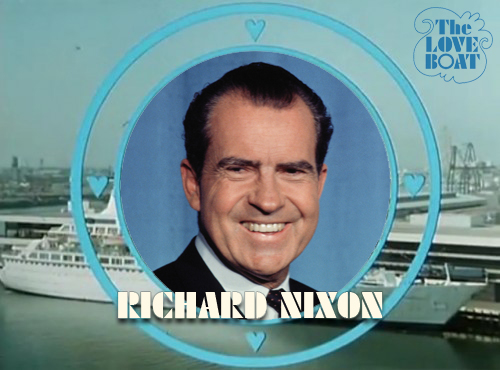Ed, I think we agree on #1 and #3.
But the second one - I didn't say that money spent by the government isn't a stimulus (or at least, I didn't mean to say that if I did), I just think the effectiveness of such a stimulus is nowhere near the same as if the government allows business to do business and government keeps where it belongs - enforcing laws equally on all parties. Also, a government that is lacking money isn't going to do much good at all, seems to me, at least in the case of Argentina who can't print dollars and depend on its strength (currently and short-sightedly) throughout the world as a means of financing its idiocy - as the US does.
But the $800B stimulus that Obama pushed (and it would have come from whichever president took over from Bush and Bush would have pushed the stimulus as well had it not been so close to the end of his presidency) - who ended up with that money? Wasn't it the car industry (minus Ford!) and Wall Street banks who got a big bailout out of it? Maybe it did some good in the short term, but I don't think it resolved anything for the long term. And people who mismanage their businesses and who cheat others out of their money got a nice windfall from this, all in the name of propping up the economy. The other money went to things that were perhaps needed, but even then, it was not an investment in the future, it was using money for things we already needed and would have no long-term future return. None of that money went to the creation of wealth as far as I can see.
Besides, I believe it was government policy which helped create the mess to begin with, on many levels. They take our money and decide what to do with it, ostensibly under control of "the people" but the people are so divided and often ignorant as to reality so that it is easy to pull the wool over their eyes as a whole.
I would have rather seen Obama dump that money into something that could have been a windfall for the entire population of the US, a true investment in the future, not trying to keep the past from screwing us. One thing that comes to mind is something like NASA Centennial Challenges is doing with the X Prize Foundation. Why not offer prize money - giant prize money instead of the much smaller amounts that NASA and X Prize offer - to companies that could figure out how to bring the cost to orbit down to dollars per pound (instead of thousands of dollars per pound) and help kick-start a space-based economy? Imagine all the jobs that would have been created eventually: janitors, skilled and unskilled laborers, clerks, teachers, engineers, scientists, and so on. For the good of the people of the US, it would be good to be the first ones to colonize space and begin to draw from space-based resources, which are quite a bit larger and can be easier to get to once the industry exists, than getting many of the same resources here on Earth. Not to mention new fabrication techniques, new materials, new energy sources and so on.
Stimulus controlled by the government is inherently political and not necessarily done for the good of a nation. I don't trust it. If the government can enforce its laws equitably the government shouldn't need to provide its own stimulus, the market will take care of that and yes, people will have to adjust to new market forces. This idea that government should try to keep buggy whip manufacturers in business just because it may be a big industry and jobs will be lost is fraught with danger and often is pushed by the buggy whip manufacturers themselves as a monetarily-consolidated group - I doubt very much by those who buy the buggy whips, unless they too are investors. (buggy whip manufacturers is just a term for all obsolete or mismanaged industries supported by, I'm not really suggesting that any government still tried to keep buggy whip manufacturers themselves in business

)
People who make buggy whips can find other jobs when other industries start up - and it's not like one will have to wait to start up for the other to go the way of obsolescence, it should be an ongoing, evolving process. The market would actually allow for those resource transfers to happen on a more stable basis than the government stretching things out and causing a rubber band effect when it snaps.



